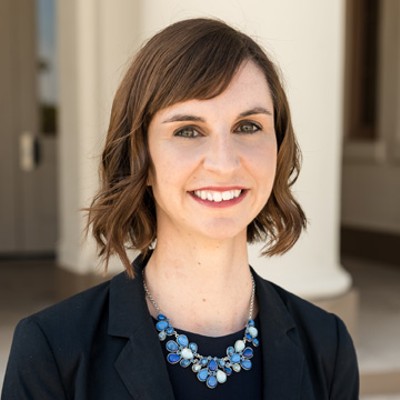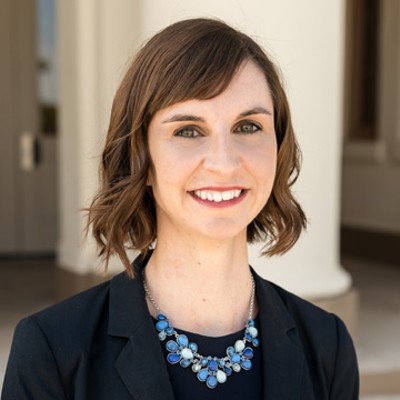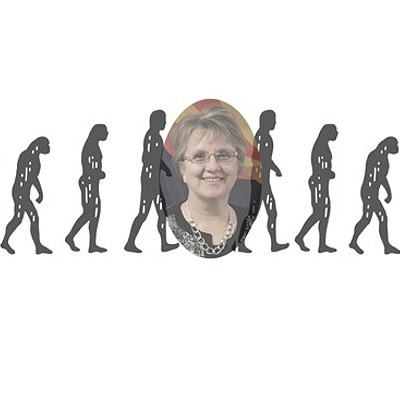John Huppenthal wants to be Arizona's next superintendent of public instruction—even though a report shows he voted against education 100 percent of the time in 2009 while he served in the state Senate.
That report, released by the nonpartisan Arizona Education Network, said Huppenthal was one of 32 state politicians who voted unanimously against public education in the 2009 session.
The Tucson Weekly contacted Huppenthal for comment, but the Republican candidate didn't return calls.
Huppenthal is facing two other Republicans in the Aug. 24 primary: Margaret Dugan and Beth Price.
Dugan is the deputy superintendent under current superintendent Tom Horne. She announced that she intended to run for the office almost a year ago. (Horne is currently running for state attorney general.)
Dugan says one of her goals is to help school districts focus on early intervention—to help students be better prepared to continue on to the next grade.
"What you do when you're teaching a classroom—when kids aren't learning in the classroom—as a teacher, you do an intervention, and they don't move on to the next grade level with deficiencies," Dugan says. "You provide more remediation if you have a slow learner."
Dugan was sent to speak at Tucson High School after labor activist Dolores Huerta was critical of the Republican Party during a speech she made to students in 2006. Horne sent Dugan to refute Huerta's statements—and she was greeted by kids who stood up, silently, with tape over their mouths. The controversy, in part, led to Horne's crusade against the Tucson Unified School District's ethnic-studies program.
When asked why Dugan isn't campaigning with her full last name—Garcia-Dugan—Dugan says the decision came down to campaign signs: Her full name was too long.
"Most of the stuff on my (campaign) website has my full name," she says.
Ethnic-studies supporters have criticized Horne for attacking the program without ever visiting an ethnic-studies classroom. Dugan shares the same opinion, asking: Why go if you're going to get a "dog and pony show"?
"I'm not sure I would really see what goes on. ... Are they going to teach what they really teach?" Dugan asks.
Unlike Huppenthal, Dugan has 37 years of experience in education, as a teacher and administrator. That experience, she says, helps her better understand what is going on in schools. She wants to change the way Arizona's schools are perceived.
"To say it is all abysmal, I find that disturbing. We have increased AIMS scores every year ... yet people want to keep saying we're 49th, but we're above the national average when it comes to testing. ... When you continue to say something is not good, people start believing it," Dugan says.
The final candidate to enter the race was Republican Beth Price, a retiree who lives in Casa Grande. Price says she's aware that a lack of name recognition and her late start could present challenges to her campaign.
But Price says she's worth an extra look, because she has a doctorate in educational administration and spent her career working with Arizona community colleges. She also has a plan to alter the state's school curriculum, to focus on reading, writing and math up to sixth grade, and then allow students to explore topics in which they may have a career interest.
"I also don't think we should settle for being 49th in the country. That needs to change," Price says. "Right now, I pray a lot and just hope people vote for me."
One of two Democratic candidates will face the winner of the GOP primary.
Jason Williams, who ran for the office and lost to Horne in 2006, is a former executive director of Teach for America in Phoenix. He now works as a managing partner with BlueDynamic, a communications business focused on nonprofits and education.
Williams believes the superintendent should be the chief advocate and cheerleader for public education. "It's what our teachers and children need. I think we've seen the opposite."
Dugan and Huppenthal, he says, represent the status quo.
"If you're pleased with the status quo—from going above national average to one of the last (states) in (per-pupil) funding—by all means, stay with the status quo. But if you're like me, and you feel it is failing our children, then we absolutely have to make a change."
Williams' primary opponent, Penny Kotterman, began her 30-plus-year education career in Peoria, Ill., in 1978 before moving to Arizona to teach in 1984. She's worked with special-education middle school students and taught English and journalism. She is now the associate director of new programs and policy at the Arizona K-12 Center, and works on professional development for educators.
Kotterman says education in Arizona is "under siege."
"When you think of public education as the place where our children learn—not just the skills and the knowledge that they need, but the ability to get along with other people, to think critically, be good citizens—it becomes really apparent that we don't have an option but to do a much better job than what we're doing with our public education system right now," Kotterman says.
Dugan has as much education experience as she does, Kotterman concedes—but she says ideology is another important part of the job.
"What do they believe? I'm focused on thinking about how I spent years as a classroom teacher, working with a really difficult and challenging array of students, with a long track record of having success. ... When I'm talking to the business community, and they say, 'We really need employable adults,' I say, 'OK, I get that, and here's what that looks like in the classroom.' I can say that," Kotterman says.
"We have to ask the Legislature: 'Why are you cutting ... education if you support our public schools? What is wrong with you to be trashing the funding sources for our universities rather than dealing with how it is that we can support them?'"
When it comes to ethnic studies, Kotterman says she doesn't think it's the job of the state superintendent to control what happens in classrooms across the state.
"That's why we elect governing boards. It doesn't mean you don't hold people in districts accountable, because you certainly have to. ... If you're true to your values and your goals, you're going to do the right thing, and the right thing is what's good for kids."













